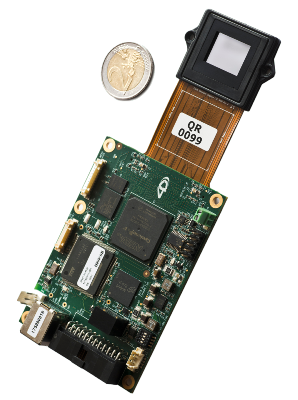Forth Dimension Displays (ForthDD), a leading provider of high-resolution Liquid Crystal On Silicon (LCOS) Microdisplays and Spatial Light Modulators (SLMs) is pleased to announce the launch of its all-new 3.1MPixel QXGA-3DM SLM at Photonics West 2015, booth 1123.

ForthDD’s 1.3MPixel SXGA-3DM SLM has a leading position in the 3D AOI PCB inspection and measurement market as well as being used for applications as diverse as silicon wafer inspection and super resolution microscopy.
The 2048 x 1536 pixel QXGA-3DM SLM builds upon this track record by enabling even higher resolution structured light systems to be built. Applications that will benefit from this increased performance include 3D inspection of System in Package (SiP) devices and Lattice Light Sheet Microscopy. Recognising the benefits of the increased resolution in leading edge imaging techniques, the first production shipment of a QXGA-3DM will go to long time ForthDD customer Howard Hughes Medical Institute (HHMI) for use by Nobel Prize for Chemistry 2014 winner Dr. Eric Betzig’s team.
The QXGA-3DM combines an industry proven microdisplay with a powerful application specific non-video drive interface. The system can be programmed offline, through the RS-232, RS-485 and USB interfaces, and no controller PC is required for normal operation. The drive interface is capable of storing up to 1024 full resolution images. Bi-directional trigger signals ensure accurate synchronization with other system components such as cameras and translation tables.
The small form factor and light weight of the QXGA-3DM gives system integrators the flexibility to design the display into their existing applications, without compromising the original mechanical design, resulting in a reduced time to market.
Mr. Greg Truman, CEO of FDD said, “Our SXGA-3DM is in 24/7 use around the world in the most advanced inspection and imaging systems. In response to demand from our customers for even higher resolutions and performance, we are pleased to launch our new QXGA-3DM product. This will allow our customers to image and inspect even smaller feature sizes and further expand the range of applications for structured light systems.”